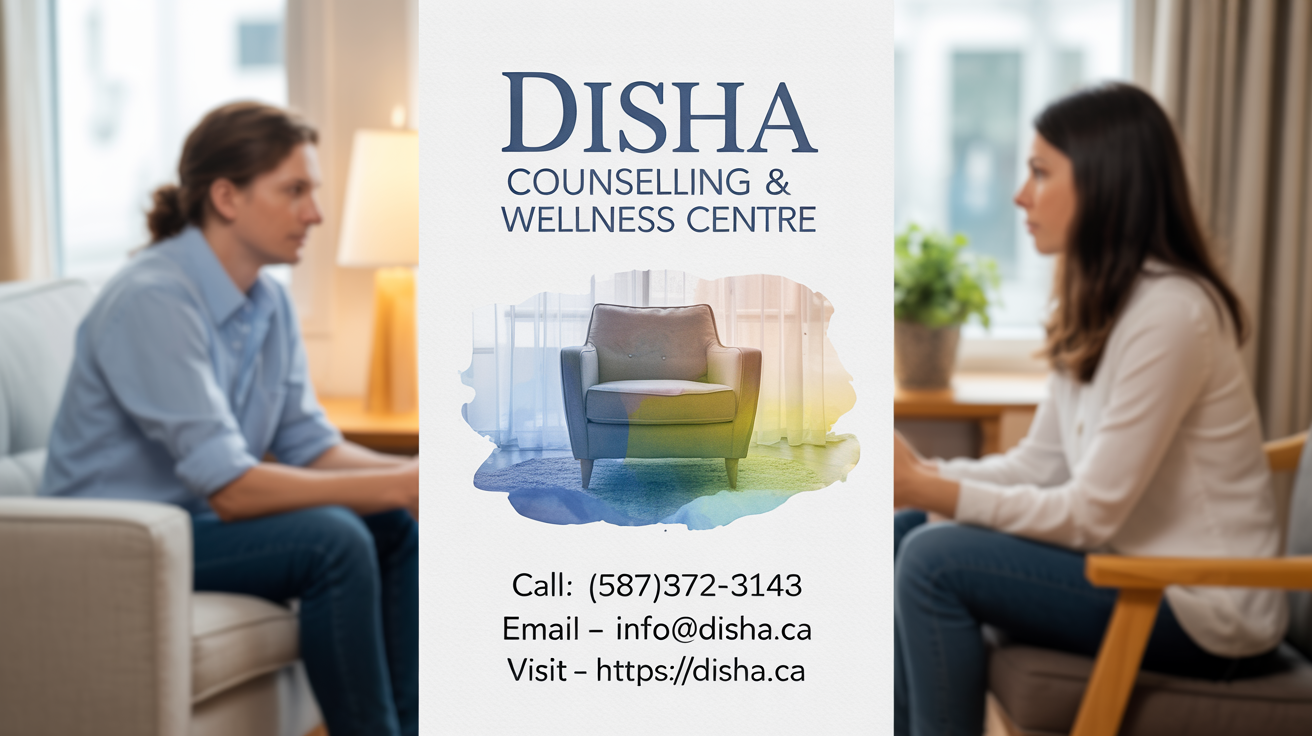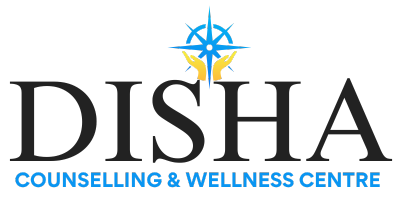Rooted Healing: Navigating Trauma-Informed Therapy for Indigenous Communities at Disha Counselling & Wellness CentreIf you've ever found yourself wondering why conventional therapy sometimes misses the mark for Indigenous folks, let me tell you a quick story: years ago, a friend shared how he felt invisible in a waiting room lined with unfamiliar brochures and even …
Rooted Healing: Navigating Trauma-Informed Therapy for Indigenous Communities at Disha Counselling & Wellness Centre

If you’ve ever found yourself wondering why conventional therapy sometimes misses the mark for Indigenous folks, let me tell you a quick story: years ago, a friend shared how he felt invisible in a waiting room lined with unfamiliar brochures and even more unfamiliar faces. This sense of alienation is precisely why trauma-informed, culturally-specific therapy matters. Walking into Disha Counselling & Wellness Centre feels different—the subtle drumbeat in the background, the warmth on the walls, even the aroma brewing in the kitchen. This isn’t just therapy; it’s community healing, wrapped in understanding. Let’s get real about what it means to heal when your history, land, and stories are woven into every step.
More Than Talk: Why Trauma-Informed Care Demands a Cultural Lens
When I first started working in trauma-informed care Indigenous communities, I quickly realized that conventional talk therapy was missing something crucial. The standard approach—sitting in an office, talking through problems—simply wasn’t reaching the heart of what Indigenous people were experiencing. It became clear that trauma therapy services Edmonton Alberta needed to look beyond individual symptoms to understand the deeper wounds.
Conventional talk therapy often overlooks intergenerational trauma unique to Indigenous communities. This isn’t just about personal experiences. We’re talking about trauma that’s been passed down through generations, woven into the very fabric of community and family life. The effects of residential schools, forced relocation, and cultural suppression don’t just disappear after one generation. They echo through families, creating patterns that traditional therapy methods struggle to address.
Listening with Hearts, Not Just Ears
Indigenous healers believe true understanding comes from listening—not just with ears, but with hearts. This approach fundamentally changes how we practice Indigenous mental health support Alberta. At Disha Counselling & Wellness Centre, we’ve learned that healing happens when therapists become witnesses to stories, not just analysts of symptoms.
Research shows that healing is enhanced when therapy incorporates community, culture, and Indigenous wellness models. This means creating space for ceremony, acknowledging the connection to land, and understanding that an individual’s healing is connected to their community’s wellbeing.
Our NIHB approved therapists at Disha understand this connection. We offer free counselling for Indigenous people with Treaty status because we recognize that accessible, culturally informed care isn’t a luxury—it’s a necessity.
Trauma Beyond the Individual
Trauma isn’t just individual; it’s entwined with history, land, and community. When someone comes to our Edmonton office at 3818A 97 ST NW, they’re not just bringing their personal struggles. They’re carrying the weight of historical trauma, the pain of disconnection from traditional ways, and often the impact of systemic discrimination.
Disha Counselling & Wellness Centre integrates cultural elements such as the Medicine Wheel into our therapeutic approach. This isn’t about adding cultural decoration to Western therapy. It’s about fundamentally shifting how we understand healing and wholeness.
“Therapy that honors story and ceremony is a step towards reclaiming Indigenous well-being.” – Leigh Ann Sheldon
This quote captures something essential about our work. We’re not just treating symptoms—we’re participating in a process of cultural reclamation and community healing.
The Difference Between Relief and Real Healing
Why does recognizing rituals, language, and traditions make the difference between relief and real healing? Because surface-level interventions only provide temporary relief. Real healing happens when people can reconnect with their cultural identity, when they can place their experiences within the larger story of their people’s resilience.
Emphasizing community and connection promotes deeper, longer-lasting healing than isolated sessions. This is why our approach extends beyond the therapy room. We encourage clients to reconnect with community, to explore their cultural practices, and to understand their healing journey as part of a larger collective process.
When you call us at 587-372-3143, you’re not just accessing individual therapy. You’re connecting with a team that understands trauma through a cultural lens. We know that intergenerational trauma, land, and storytelling are central to Indigenous therapy approaches, and we shape our practice accordingly.
The difference isn’t subtle. When therapy honors cultural context, people don’t just manage their symptoms—they reclaim parts of themselves they thought were lost. They find healing that connects them more deeply to who they are and where they come from.
Free, Accessible Healing: Making Therapy Possible for Treaty Status Clients
I’ve witnessed too many stories where cost becomes the silent barrier between healing and hope. When someone carries trauma, the last thing they should worry about is whether they can afford the support they desperately need. Yet this reality affects countless Indigenous people across Alberta who want to begin their healing journey but face financial obstacles that seem insurmountable.
At Disha Counselling & Wellness Centre, we’ve made a commitment that sets us apart in Alberta’s mental health landscape. We offer free counselling Indigenous Treaty status clients through our NIHB approval – something that’s unfortunately rare to find in our province. This isn’t just about providing a service; it’s about removing one of the most significant barriers that prevent people from accessing trauma-informed care.
Breaking Down Financial Barriers Through NIHB Approval
Canada’s Non-Insured Health Benefits (NIHB) program exists specifically to ensure that financial stress doesn’t compound existing trauma. As an NIHB approved therapist Alberta, I can work directly with this program to provide completely free sessions for Indigenous clients with Treaty status. Research consistently shows that financial accessibility is crucial for effective trauma therapy in Indigenous populations – when people don’t have to choose between basic needs and mental health support, they can focus entirely on their healing process.
The paperwork and approval processes can feel overwhelming, but that’s where our team steps in. We handle the administrative side so clients can concentrate on what matters most: their wellbeing and recovery journey.
Flexible Access: Online and In-Person Counselling Options
Geography shouldn’t determine access to quality mental health care. That’s why we provide both online and in-person counselling options throughout Alberta. Some clients prefer the comfort of their own space for virtual sessions, while others find healing in our Edmonton office at 3818A 97 ST NW. Both approaches honor the privacy and comfort that trauma survivors need.
Travel can be another barrier – especially for those living in rural communities or dealing with transportation challenges. Our online sessions eliminate these concerns while maintaining the same level of care and cultural sensitivity that defines our practice.
Real Stories of Accessible Healing
One client recently shared something that stuck with me: finally, “money didn’t come up” in her healing process at Disha. For the first time in years, she could attend regular therapy sessions without calculating grocery budgets or postponing other necessities. This simple shift – removing financial worry – allowed her to dive deeper into trauma work than ever before.
“Knowing you don’t have to choose between groceries and healing is powerful.” – Michael Beaver
These words capture something essential about accessible mental health care. When basic survival needs compete with healing needs, trauma often wins. But when we remove cost as a factor, people can make choices based purely on their wellbeing and readiness to heal.
Making Contact Simple and Straightforward
Starting therapy shouldn’t involve complicated processes or lengthy waits. If you’re Indigenous with Treaty status and looking for trauma-informed support, reaching out is straightforward. You can contact us at 587-372-3143 or visit our Edmonton location. We’ll walk you through the NIHB process and help determine whether online or in-person sessions work best for your situation.
Our approach recognizes that healing happens differently for everyone. Some clients benefit from the structure of regular office visits, while others thrive in virtual sessions that offer flexibility around work, family, or other commitments. Both options provide the same culturally sensitive, trauma-informed care that Indigenous communities deserve.
Free counselling for Indigenous people with Treaty status isn’t just a service we offer – it’s a commitment to ensuring that financial barriers never prevent someone from accessing the healing they need and deserve.

Disha Counselling: Where Science Meets Story and Ceremony
When I first walked into Disha Counselling & Wellness Centre in Edmonton, I wasn’t sure what to expect. The space felt different from traditional therapy offices—warmer, more connected to something deeper than just clinical practice. What I discovered was a unique approach where Disha Counselling services bridge two worlds: evidence-based Western psychology and Indigenous healing traditions.
The therapists at Disha don’t just stick to one playbook. They blend Western therapeutic techniques with Indigenous frameworks like the Medicine Wheel, creating something entirely new. Research shows that incorporating cultural practices enhances engagement and outcomes for Indigenous clients, and you can feel this truth in every session.
Beyond One-Size-Fits-All Therapy
What strikes me most about their approach is how they handle personalized therapy services. There are no off-the-shelf programs here—just real conversations about what actually works for you. The certified mental health professionals at Disha understand Indigenous worldviews in ways that go beyond textbook knowledge. They listen first, then craft treatment plans that honor both your individual needs and cultural background.
I’ve sat in on sessions where a therapist might start with cognitive behavioral techniques, then naturally shift into storytelling or traditional healing practices. It doesn’t feel forced or artificial. It flows like a conversation between old friends who understand each other’s languages.
Ceremony Meets Mindfulness
The workshops and group sessions at Disha reflect this same integration. You’re as likely to encounter smudging as you are mindfulness meditation. Both have their place, both offer healing, and both are treated with equal respect and intentionality.
“When Western psychology meets Indigenous storywork, healing takes on new depth.” – Cheryl Sheldon
This quote captures something essential about what happens at Disha. The combination isn’t just additive—it’s transformative. Storytelling and collective healing play central roles, moving away from the traditional clinical model toward something more community-based and culturally grounded.
The Power of Talking Circles
There’s a moment that stays with me from observing the talking circle sessions at Disha. Even the silence feels healing there. Participants share when they’re ready, listen when they need to, and simply exist in the space when that’s what serves them best. The circle holds space for all of it.
These group programs are available for individuals, couples, and families, recognizing that healing often happens in relationship with others. The mental health resources Indigenous people need aren’t just about individual therapy—they’re about rebuilding connections to community, culture, and traditional ways of understanding wellness.
Training the Next Generation
Disha doesn’t just provide services—they’re actively training both Indigenous and allied mental health professionals. This work of education and capacity building ensures that more therapists understand how to work respectfully and effectively with Indigenous communities.
The workshops and training programs recognize that effective therapy for Indigenous people requires more than good intentions. It requires deep cultural understanding, trauma-informed approaches, and the ability to hold space for healing practices that have sustained communities for generations.
For Indigenous people with Treaty status, these services are available at no cost through NIHB-approved therapists. You can reach Disha Counselling at 3818A 97 ST NW Edmonton, T6E 5S8, or call 587-372-3143 to learn more about their trauma-informed therapy approaches.
What makes Disha special isn’t just their techniques or credentials—it’s their understanding that true healing happens when science meets story, when evidence-based practice honors ancestral wisdom, and when therapy becomes ceremony.
From Edmonton to All of Alberta: Culturally Sensitive Care Wherever You Are
When I first learned about Disha Counselling & Wellness Centre, I was struck by something profound. Yes, they have a physical location at 3818A 97 ST NW Edmonton, T6E 5S8, but their reach extends far beyond these walls. The truth is, healing doesn’t recognize postal codes or municipal boundaries.
What makes this particularly meaningful is how counselling services Alberta can truly serve everyone across the province. Disha has broken down the traditional barriers that often keep rural and remote communities from accessing quality mental health support. Their approach isn’t just about providing services—it’s about meeting people where they are, both literally and figuratively.
Breaking Geographic Barriers Through Digital Connection
The reality of living in Alberta means vast distances between communities. I’ve seen how this creates real challenges for Indigenous people seeking culturally appropriate care. That’s where online and in-person counselling becomes transformative. Through secure digital platforms, someone in Peace River can access the same trauma-informed therapy as someone walking into their South Edmonton office.
Research shows that extending care beyond urban centres increases access and relevance for Indigenous populations. This isn’t just convenient—it’s essential. When you’re dealing with intergenerational trauma or cultural disconnection, having access to therapists who understand your background makes all the difference.
The online counselling platform maintains the same cultural sensitivity and trauma-informed approach. NIHB-approved therapists provide free counselling for Indigenous people with Treaty status, whether you’re connecting from your kitchen table in Edmonton or a community centre in Fort McMurray.
More Than Just a Building: Community-Centered Outreach
What fascinates me about Disha’s approach is how they’ve made their centre more than just a place you visit for appointments. They actively engage with community partners, participate in local events, and develop creative programs that bring healing directly to where people gather.
These partnerships with schools and organizations across Alberta create natural touchpoints for mental health support. It’s not always about formal therapy sessions. Sometimes it’s about being present at a powwow, offering workshops at a friendship centre, or providing consultation to other service providers.
“Healing isn’t just something that happens in an office—it happens wherever the story is welcomed.” – Dustin Twin
This philosophy shapes everything they do. The Indigenous Psychological Services Edmonton model extends throughout Alberta because healing happens in relationships, in community, and in spaces where people feel safe to share their stories.
Imagining Possibilities: Story Circles in Small Towns
Picture this: a small northern Alberta community where internet connection can be spotty, but determination runs deep. Through Disha’s online programming, a group of children gathers weekly for virtual story circles. They learn about self-worth, cultural pride, and emotional regulation through traditional storytelling methods adapted for digital connection.
This isn’t just hypothetical—it’s the kind of innovative programming that becomes possible when you think beyond traditional service delivery. The facilitator might be in Edmonton, but the healing happens in that northern community, guided by local knowledge keepers and supported by professional mental health expertise.
The beauty of this approach is its flexibility. Some weeks might be fully online, others might blend virtual guidance with in-person community support. The key is maintaining cultural authenticity while leveraging technology to overcome geographic barriers.
For those ready to explore these services, calling 587-372-3143 or visiting https://disha.ca opens doors to support that truly meets you where you are. Whether you’re in Calgary, Grande Prairie, or anywhere in between, culturally sensitive trauma-informed therapy is within reach.
Conclusion: Why Disha Counselling & Wellness Centre Feels Like Home
When I think about what makes Disha Counselling & Wellness Centre different, one thing becomes clear—this isn’t your typical clinical setting. Located at 3818A 97 ST NW Edmonton, Disha functions as something far more meaningful: a living bridge between ancient traditions and modern therapy approaches.
The difference hits you the moment you connect with their team. Real healing isn’t rushed here. It unfolds like storywork around a fire—at your pace, in your way. Research shows that holistic, culturally sensitive approaches transform the healing process within Indigenous communities, and Disha embodies this understanding completely.
What strikes me most about their approach to trauma-informed therapy for Indigenous people is how naturally it flows. You’re not walking into a sterile office where your cultural identity gets checked at the door. Instead, you’re entering a space where healing is understood as something deeply connected to relationships—with the land, with yourself, with family, and with story.
The services at Disha Counselling & Wellness Centre reflect this philosophy completely. From individual sessions to group circles and workshops, everything is shaped by genuine respect for history, language, and land. Their NIHB-approved therapists understand that wellness means something different when viewed through Indigenous perspectives. It’s not just about managing symptoms—it’s about reconnecting with wholeness.
Here’s what really gets me: if traditional therapy ever made you feel isolated in your healing journey, Disha’s approach will remind you that healing is meant to be shared. The wild card in their methodology isn’t some cutting-edge technique—it’s the simple recognition that none of us heal in isolation.
“Here, every client is more than a diagnosis; they’re a whole world of stories.” – Leigh Ann Sheldon
This quote captures something essential about the culturally sensitive support Edmonton residents can access through Disha. Clients consistently report feeling ‘seen’ and ‘heard’ as whole people—not just case files or diagnostic categories. When someone walks through their doors, they’re not reduced to their trauma or symptoms. They’re recognized as a complete person with a rich history, cultural connections, and inherent wisdom.
At Disha, ‘wellness’ takes on a broader meaning. It’s about walking together, honoring both past and future while breaking down the walls that often separate Indigenous people from effective mental health support. The centre reimagines trauma-informed therapy as a holistic, communal pathway that serves Indigenous people across Alberta.
What makes this particularly powerful is the accessibility they’ve built in. Free counselling services are available for Indigenous people with Treaty status, removing financial barriers that too often prevent people from accessing the support they need. You can reach them at 587-372-3143 to learn more about their services.
The truth is, healing has always been about community in Indigenous traditions. Disha understands this deeply. They’ve created a space where your cultural identity isn’t something to work around—it’s the foundation that supports your healing journey.
When I consider what sets Disha apart in Edmonton’s mental health landscape, it comes down to this: they’ve managed to honor traditional ways of understanding wellness while providing professional, evidence-based therapeutic support. It’s not either-or. It’s both-and.
That’s why Disha feels like home to so many people. It’s a place where you can bring your whole self—your history, your culture, your pain, and your hopes—and know that all of it will be met with respect, understanding, and skilled support. In a world where Indigenous people often feel caught between different approaches to healing, Disha offers something rare: integration, respect, and genuine care.
Disha Counselling & Wellness Centre in Edmonton provides trauma-informed therapy for Indigenous people, blending cultural wisdom with modern approaches, and offering NIHB-approved, free support for Treaty status clients across Alberta.







